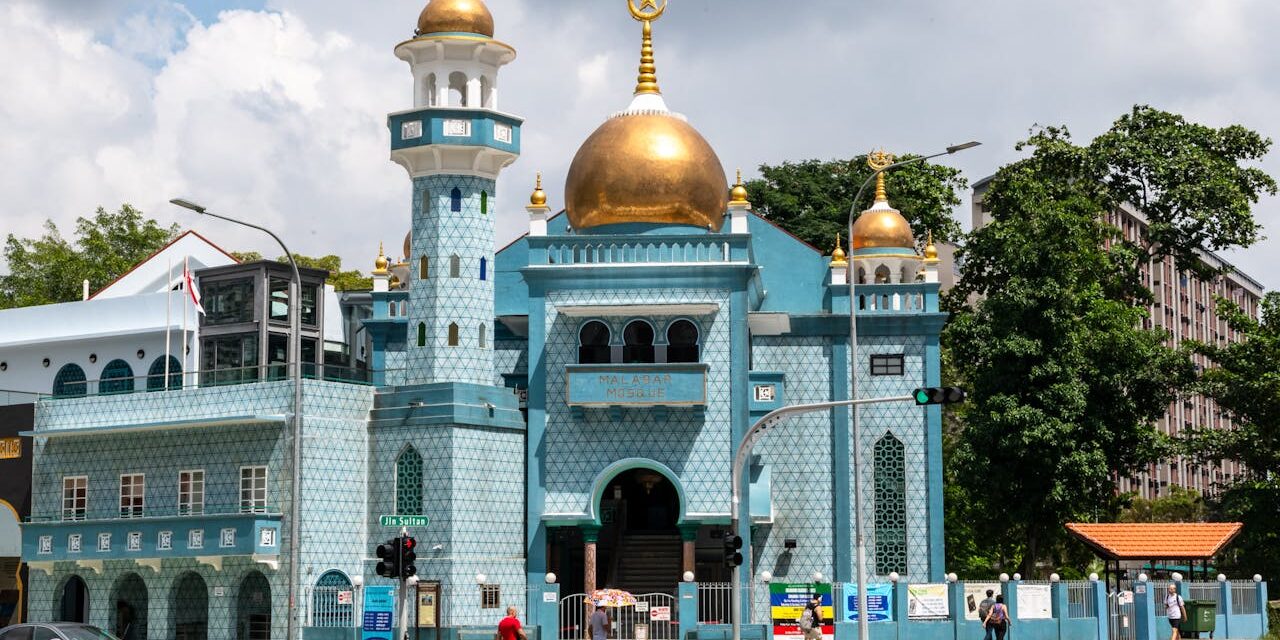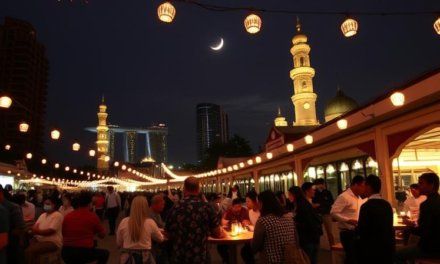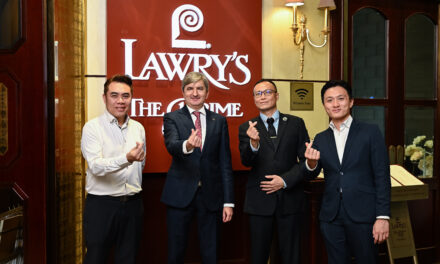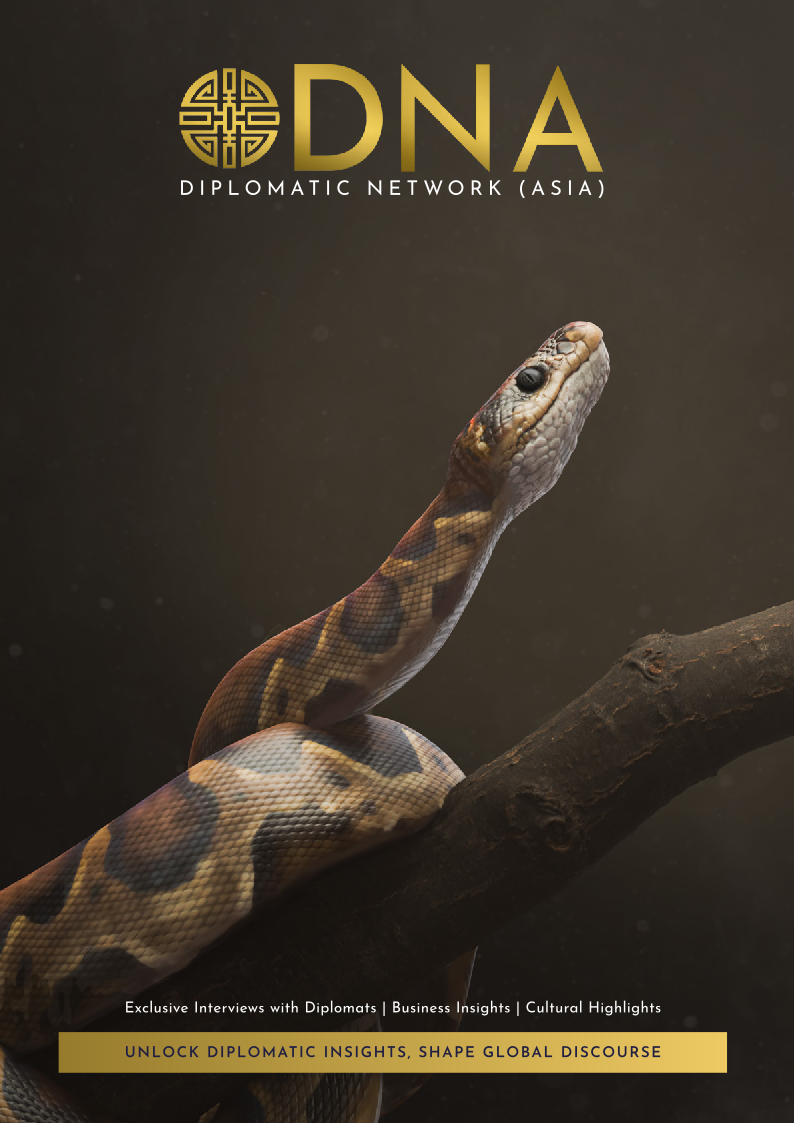Eid al-Fitr is a celebration from which all faiths can learn, where community, reflection and gratitude are at its core.
To delve deeper into the significance of this auspicious occasion and its broader implications for interfaith understanding and inclusivity, Diplomatic Network (Asia) is honored to have spoken to Mohamed Imran Mohamed Taib.
Imran is the founder and executive director of Dialogue Centre and a founding board member of Centre for Interfaith Understanding. Both are interfaith organizations with an inclusive and progressive approach toward diversity in Singapore.
What do Ramadan and Eid mean to you?
Ramadan to me a special month that has become a part of my social and religious experience since young. This holy month carries many meanings for me. In this month, where I train myself to engage in deeper self-reflection while abstaining from food and drinks; strengthen bonds with my loved ones through communal breaking of fast, or ‘iftar’, strive to reach out to the underserved and less privileged members of society to understand their struggles and do some charity work; and exert myself in knowledge-seeking because Ramadan is also a month where the first word in the Qur’an – “Read!” – was revealed to Prophet Muhammad.
Unlike the more contemplative mood in Ramadan, Eid is a more joyous occasion. Although Eid is a Muslim religious festival, I have always celebrated Eid culturally as a Malay. This means, we celebrate it for an entire month! I was younger, Eid, or ‘Hari Raya’ as we call it in Malay, was exciting, primarily because we got to put on colorful traditional Malay clothes called ‘baju kurung’ and go house visiting with family and friends. It was a time where we get to eat delicious traditional food like ‘rendang’ and ‘ketupat’ and the many ‘kuih’, or delicacies. But as I grow older, it is more about meeting families and relatives that we hardly see in our busy schedules. It is a time to renew ties and catch up on happenings within the wider family.
Can you share a memorable experience from your own Ramadan celebrations?
I used to believe that fasting is about experiencing what the poor and hungry feel like. Once, I was breaking fast in a hawker center and I saw an old lady seated alone with only a piece of bread on her table. When it was time to break fast, I noticed that the bread and a cup of tea was all she had. Immediately I felt guilty about the food that filled my entire table. I went over, shared my food with her and accompanied her for the rest of the meal.
This episode taught me that fasting is not about experiencing the lives of the poor. It cannot be because we know that there will be plenty of food to look forward to once the sun sets; unlike the poor who will continue to go hungry into the night. Now, I get uncomfortable with the lavish breaking of fast events. I think Ramadan is about holding back and reducing consumption. It is also about approaching the poor and less privileged members of society to understand their plight, offer some relief and work towards a sustainable solution to reduce suffering. I learned this from that old lady. We can only embody unity and compassion if we practice humility. This is a memorable lesson that I will not forget.
How do you see the significance of Eid evolving in modern times, particularly in a globalized and multicultural context?
Singapore is a cosmopolitan society. Even though I celebrate Eid culturally as a Malay, I am also learning about how the festival is celebrated in other parts of the world. I learned this through asking my non-Malay Muslim friends who would share how Eid is celebrated in countries such as China, India or in Europe. Despite the diversity, the significance of Eid as a religious festival celebrated by all Muslims, does not change. It is a day of giving thanks to God for His Mercy, renewing family, friend and neighborly ties, and partaking in communal meals when we do house visits.
In Singapore, we do not have the tradition of returning to our villages, called ‘mudik’ or ‘balik kampung’. We no longer have villages and Singapore is too small. Hence, I envy friends in Malaysia and Indonesia who have a village to return to. I heard that celebrations in villages are more fun and joyous, with firecrackers and fireworks!
Nonetheless, it is still an exciting festival in Singapore, particularly on the night of Eid. It is always a busy night with cooking and cleaning, with popular Hari Raya songs waffling through the air. Although times have changed, many of us keep to our traditions. The celebration engages with our sensory experience: the familiar sound of ‘takbir Raya’, a special prayer call during Eid, the smell of ‘rendang’, the sight of colorful ‘baju kurung’ and the touch of ‘green packets’ filled with money notes being readied to give to children. They evoke memories of the past that continue even today, making the celebration stable despite the changing landscape of our world.
But perhaps, this year’s Eid is more introspective, given the global challenges and backdrop of wars and suffering – particularly in Gaza.
As a director of the Dialogue Centre Singapore, how do you envision leveraging Ramadan as a platform for fostering greater understanding and collaboration among diplomats and international communities?
I think Ramadan offers an opportunity to see the spirit of togetherness fostered within the Muslim community in many parts of the world, including Singapore. Singapore is such a multi-cultural and multi-religious society, so there are many iftar that involve people of diverse faiths and ethnic groups. For this year’s Ramadan, for example, Dialogue Centre co-organized an interfaith iftar called “M-Iftar” that brought members of different races and religions together. Not only that, but we also involved members of underserved and underprivileged communities, such as migrant workers, domestic helpers, clients of family service centers, recovery patients, transgender people on welfare assistance, and more. So, it was not only a communal breaking of fast, there was also a dialogue where we listened to the lived experience of the invitees. We also get to hear how fasting is done in the various faiths, such as Buddhist, Taoist, Hindu, Baha’i, Jewish and Christian faiths!
Such events develop deeper understanding, forge goodwill and bond members of different sectors in society.
I hope more of such programs can be done and I welcome members of the diplomatic and international communities to join and even host such events in Ramadan!







